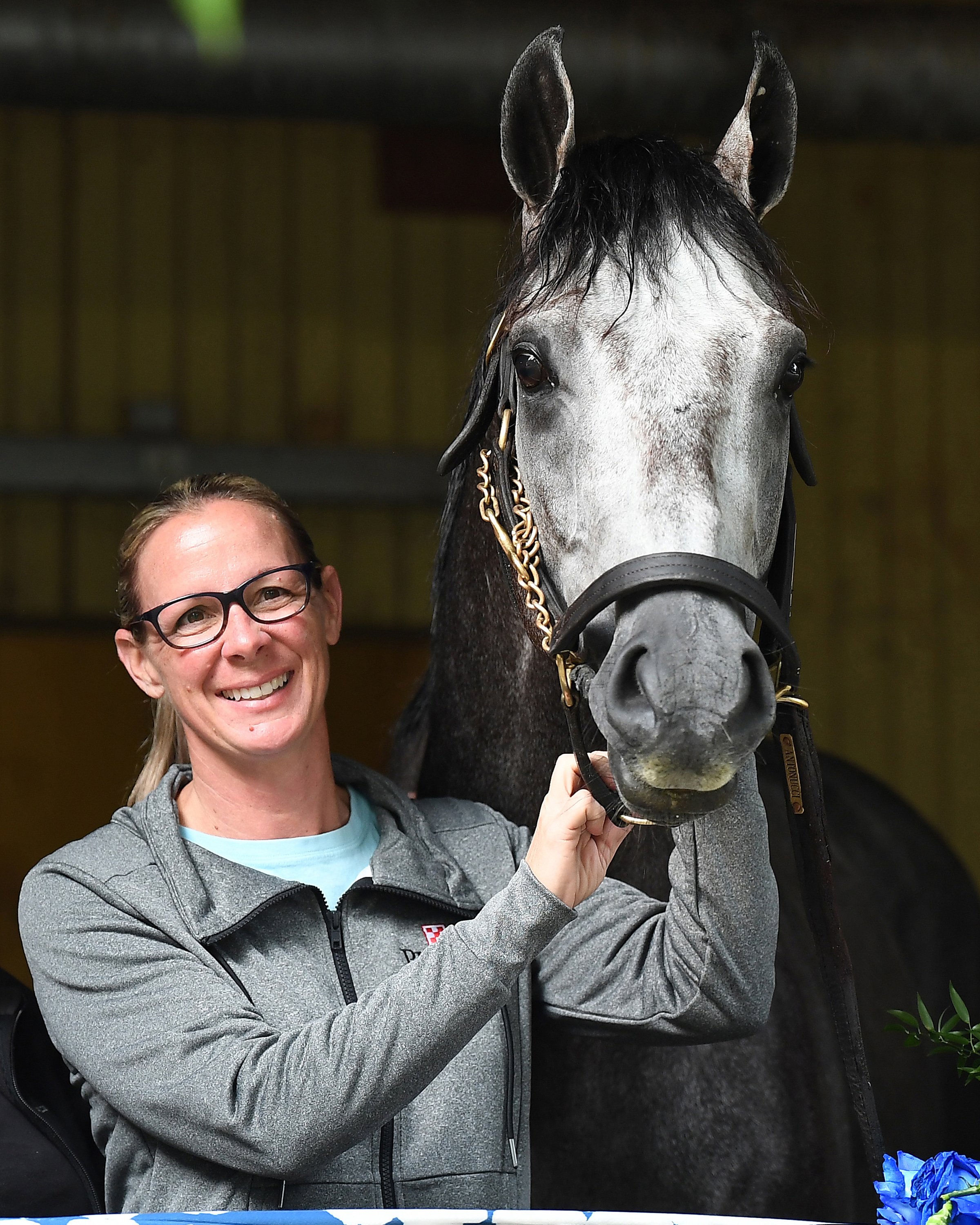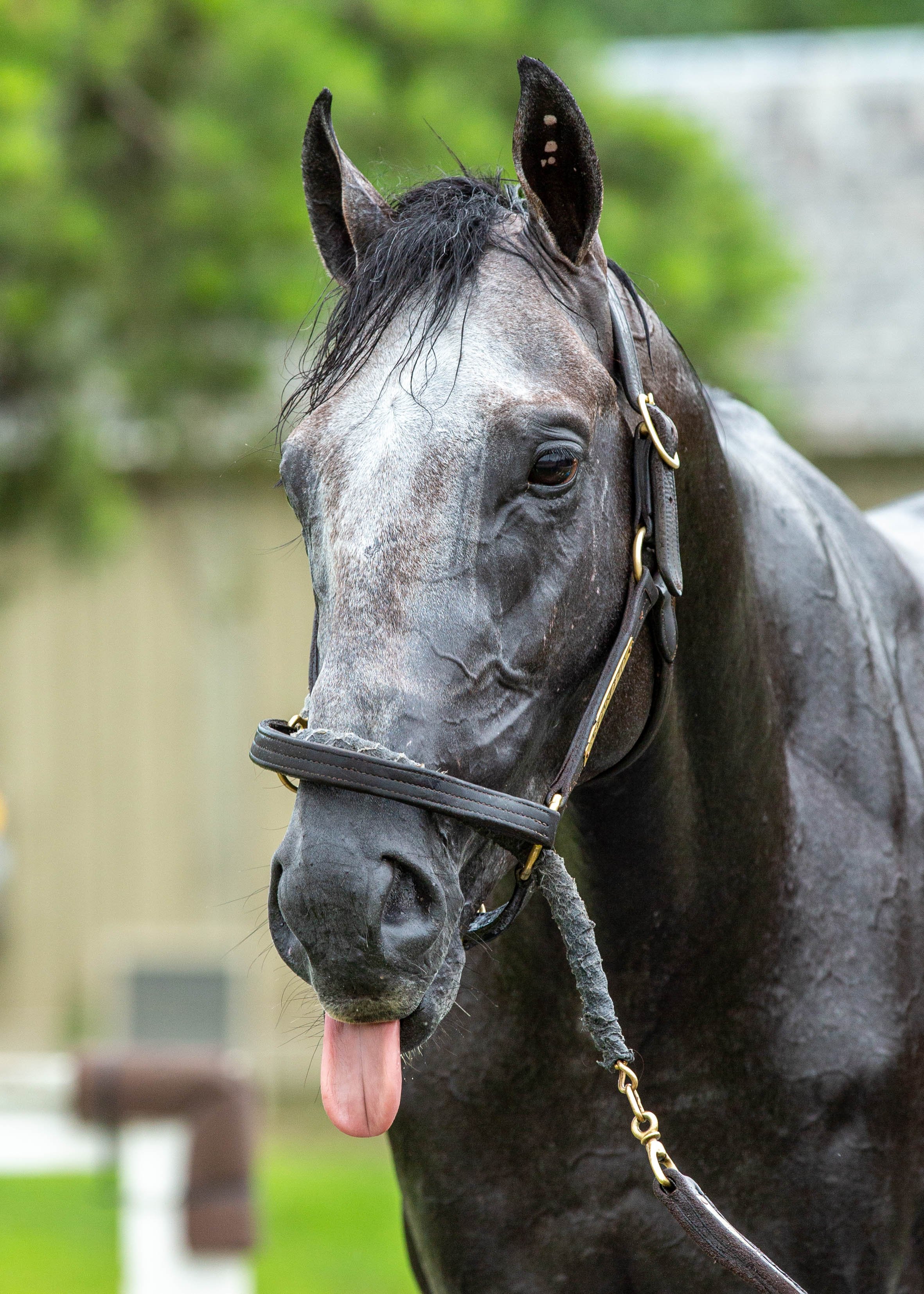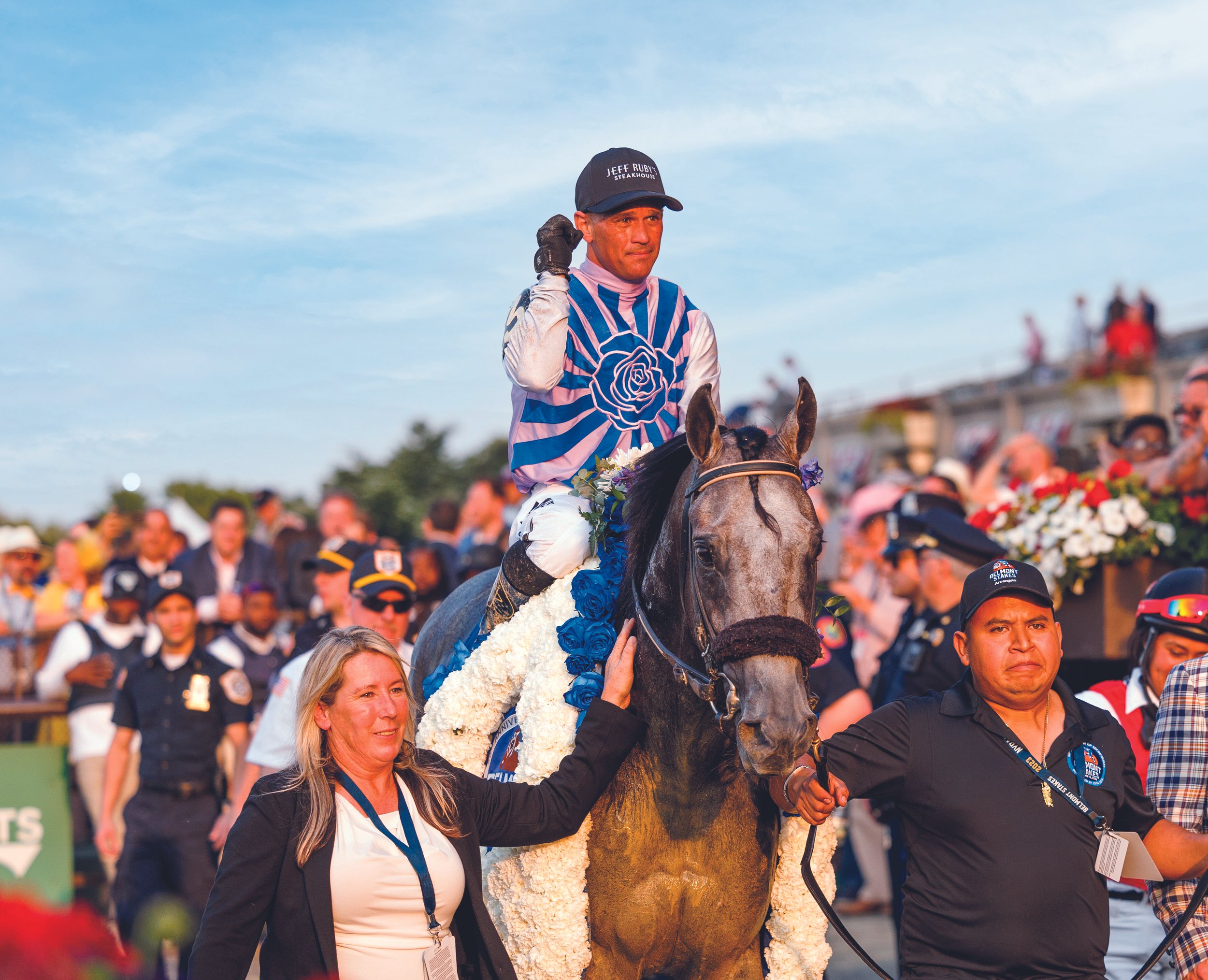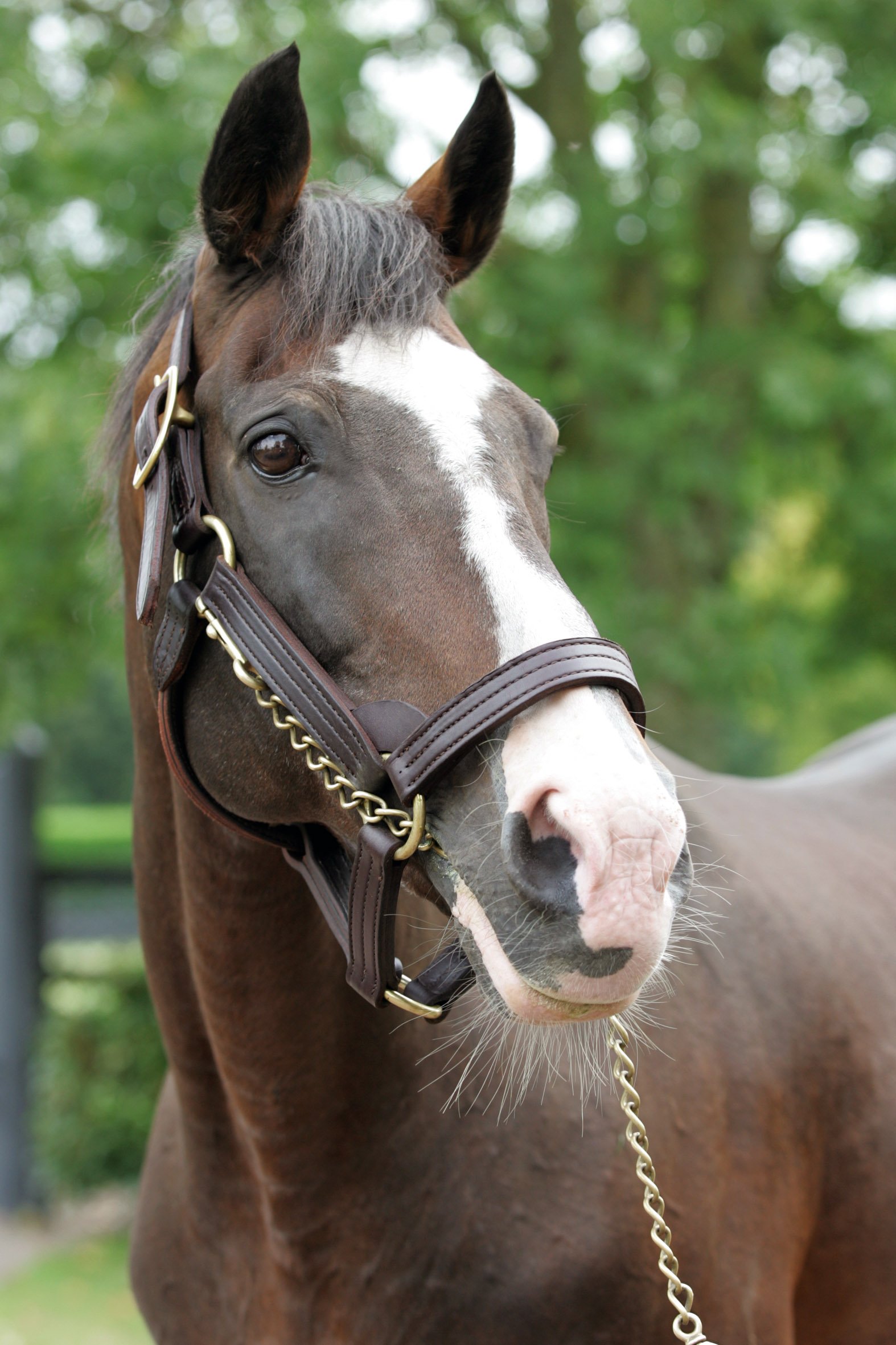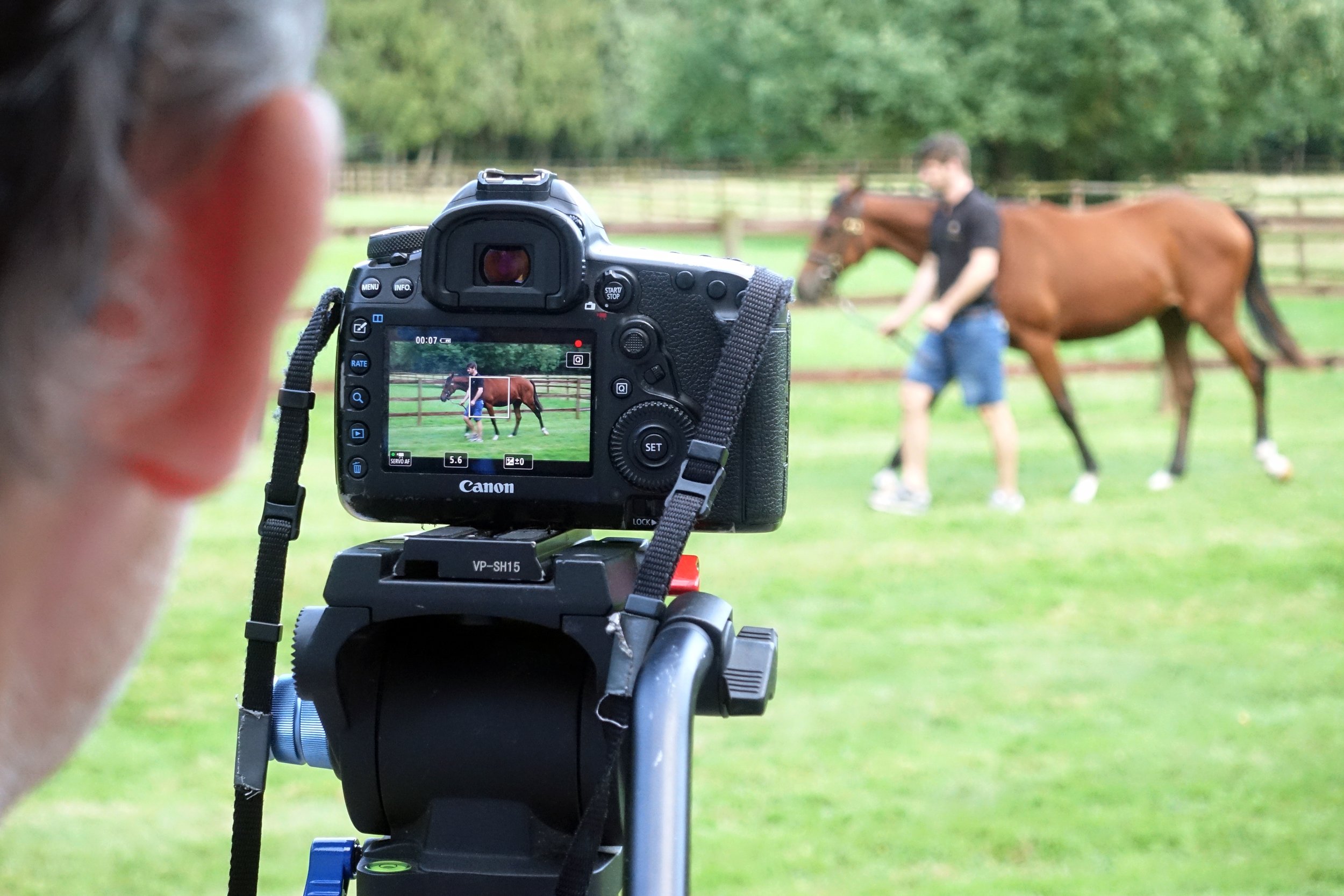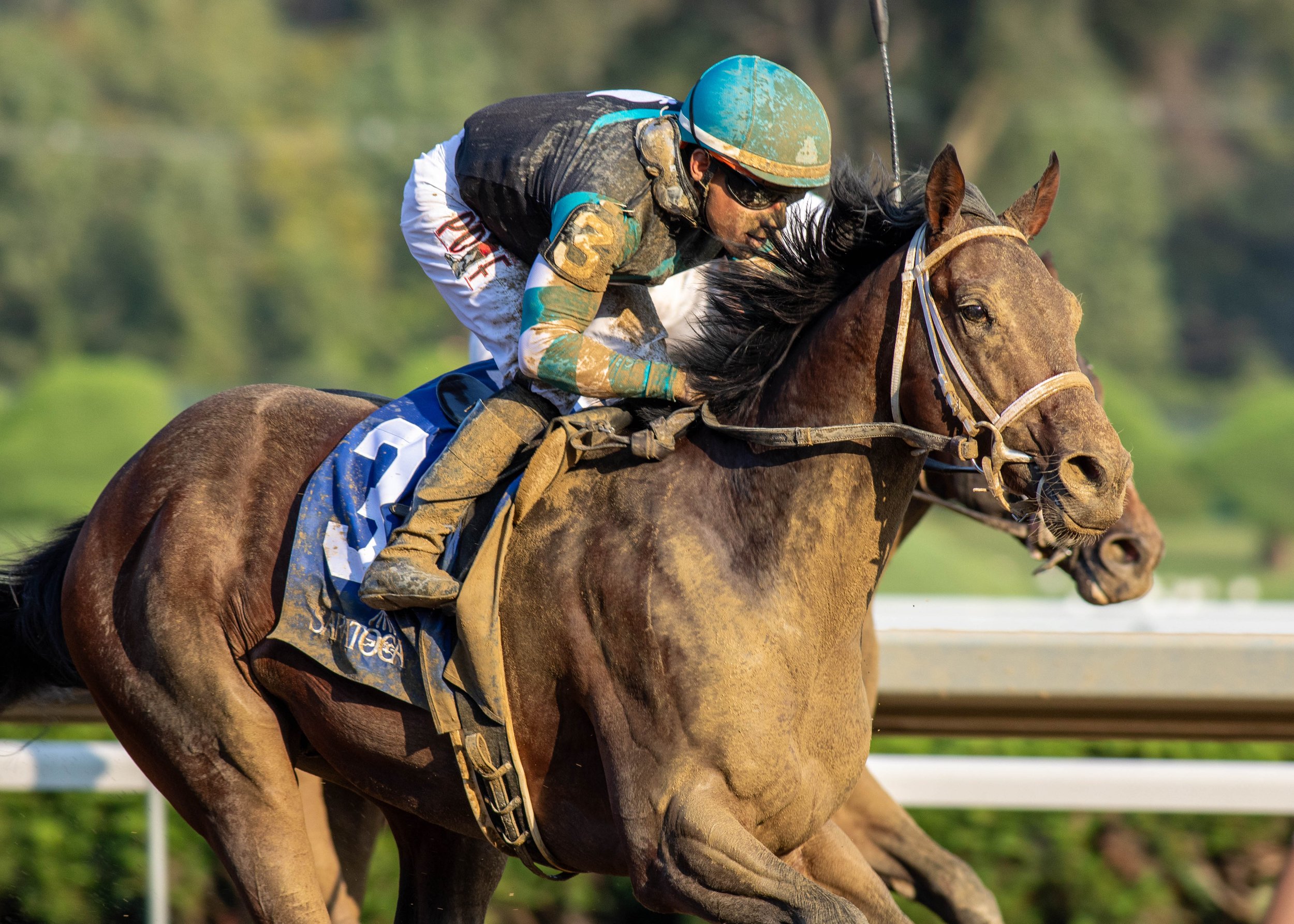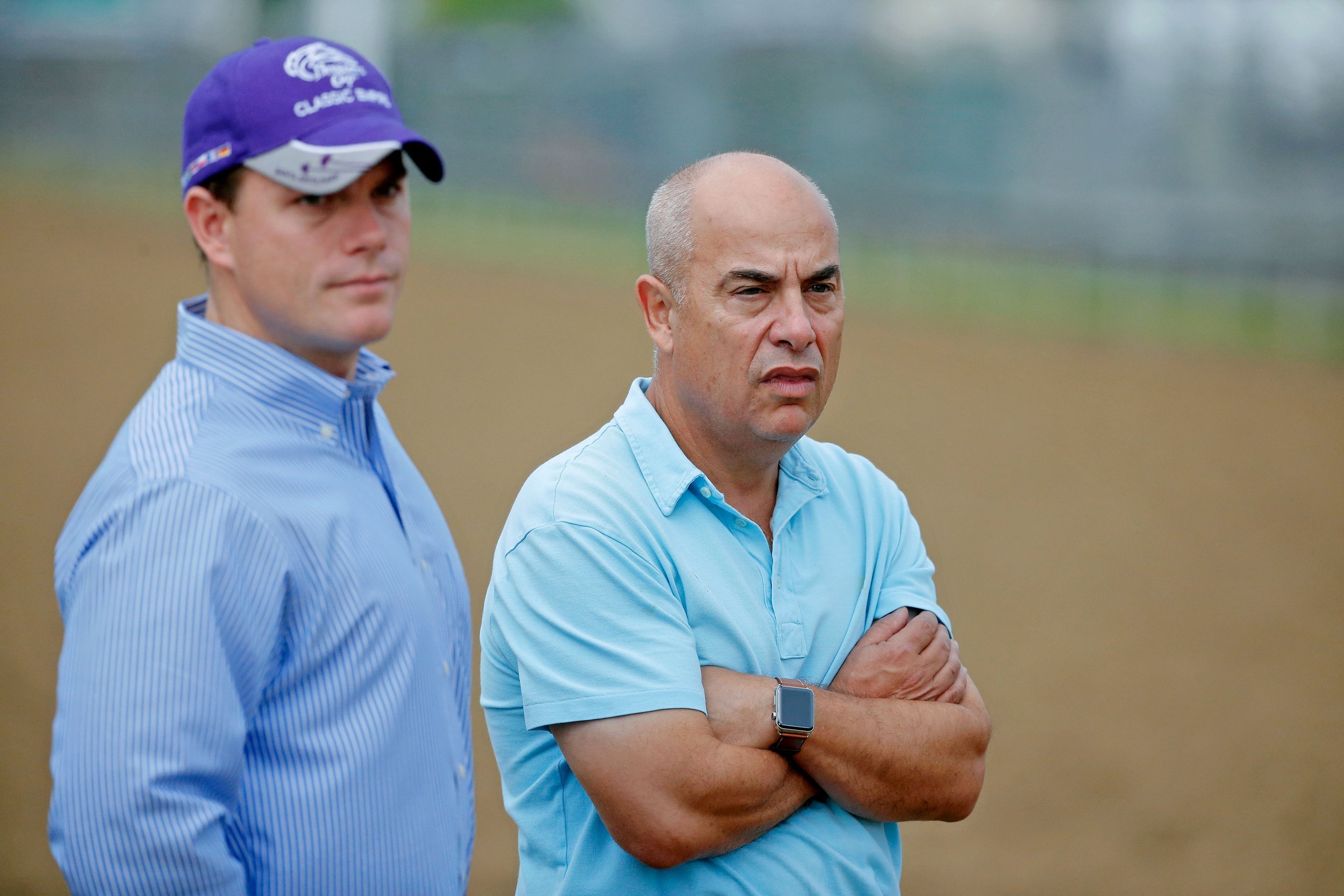Jena Antonucci - trainer of the star 3yo of 2023 - Arcangelo
Words - Ken Snyder
In the media avalanche surrounding Jena Antonucci, after her summer to remember, there is both rich irony and something very telling in one of the three “things you didn’t know” about her that escaped attention: she competed in shotgun shooting events. Those close to her who didn’t know this might say, “That figures,” or “I’m not surprised.” Shooting takes focus and concentration, both of which are in Antonucci’s DNA.
The next thing they would say is probably “I bet she kicked ass.”
Her parting words in an interview on YouTube the morning of this year’s Belmont? “Let’s go kick some ass.”
She does not fit the mold of a Thoroughbred trainer. If “focus” and “concentration” could be scored and put into some kind of competition, she’d likely kick ass in that too.
The two other “things you didn’t know”: she is in her own words a “very good golfer, but without much time to play.” The third thing? She is hesitant to admit that “she doesn’t drink coffee.”
Mold breaker might be an apt description of Antonucci in her handling of success. The example is her response as a small- to medium-size trainer.
“Our number one goal is always wanting to be in the thirty- to thirty-five range, and that’s where we’re focused on staying,” she said. In a purely commercial sense, that’s saying no' to a flood of potential new business in the wake of Arcangelo’s success.
Were there calls from prospective owners after the Belmont and Travers?
“There have been conversations, but it’s been a ‘onesie, twosie,’ here and there, kind of thing.
“We’re not looking to be a stable of 150 horses. It’s not who we are. It’s not who I am.”
Antonucci is a horsewoman who rode show horses from age three into young adulthood and then gained not just experience but the right experience with Thoroughbreds. Her first foray was breaking and galloping them at Padua Stables in Ocala, Florida, where she now lives. She was then a veterinary assistant for four-and-a-half years, which gave her valuable horse knowledge on the ground. Exercise riding after vet work gave her knowledge up top astride a horse. All-important management experience, a necessary skill in any racing stable, came through her Bella Inizio Farm she opened in Ocala. (“Bella Inizio,” incidentally, translates as “nice start” in English.)
As if that’s not enough, she operates HorseOlogy with co-owner Katie Miranda, a Thoroughbred training and ownership organization that spans raising, training and racing while also offering bloodstock advising, pinhooking, micro-investing and more.
Her start in training was at Tampa Bay Downs in 2010, a year that maybe wasn’t the “nicest.” She won two of eight races and had two second-place finishes. Things began to take off in 2013 with 288 starters and earnings of $1,067,303. This year, of course, Arcangelo has vaulted her into the stratosphere with his $1.7 million in earnings.
“We’ve kind of been the ‘little stable that could’ for a long time,” looking back at her previous ten years of training.
“One thing I’ve always been very proud of is horses who have been claimed off of us or who went to a different barn [and] haven’t gone on to become big flourishing horses. I think a lot of mid-size trainers deserve to be evaluated in that manner, and it’s something I think we fail in the industry to do.”
She has, perhaps, a more realistic take on win percentages for trainers and how she believes they are misinterpreted by not factoring in stable size. Her website even has a section entitled Statistics Aren’t the Only Indicator of Success. “I think you can have somebody at 20 percent if they have 200 horses and can put a million-dollar horse in to get the win.”
Arcangelo broke his maiden third time out at Gulfstream Park and has been undefeated since then. “I think we get stuck in the headlines of ‘Oh, won first out!’ It’s atypical. It is likely that less than a single-digit percentage of the horse population annually wins the first time out. We set owners up for failure.
“I think we do a consistent job across the board. I’ve had to make a lot of chicken soup out of chicken poo; and with that, I think I have the reputation for being a good horsewoman who is thorough and is trying to find the missing piece or what we can to find a horse’s success level.”
The missing piece for Arcangelo was careful parceling of his potential Horse of the Year talent. Antonucci’s racing campaign gave the horse more time between starts than other trainers might have given the son of the late Arrogate.
“I give a lot of credit to John [Ebbert], his owner, for allowing this horse to have space. I would say most, if not all owners, who saw this talent coming would want a pretty aggressive schedule. I give John a lot of credit for allowing this horse to have the breathing room that he needed and not pressuring me and the horse to pick up races on a tighter schedule.”
Antonucci uses an open-door policy to both involve her team of workers and parcel her own insight and skill as a trainer throughout her string. “It’s impossible for me to be able to put a hand on every leg, every day,” she said. The solution is a barn where everyone—whether foreman, groom or exercise rider--is encouraged to speak up if they feel anything has changed with a horse.
“So many exercise riders that come to work for us—it’s such a relief for them to be able to come and be able to tell what they’re feeling. So many trainers and assistant trainers don’t want to hear it. A rider may not know exactly what it is, but if they’re communicating that something feels different, that’s all we need to know.
“I think having a riding background and coming from that avenue into this and not racing per se—and riding for so long—I can see what they’re feeling.
“We don’t ever tell anyone that we don’t want to hear what they have to say.”
There are nuances also in Antonucci’s relationships with owners. “I don’t think we want our clients to go, ‘Whatever you say,’ but I think there’s a balance with the people that believe in us. They know Fiona [Goodwin, assistant trainer]. They know it’s ‘horse first.’ And we’re going to make the best possible results with who we have in our hands.
“I don’t have a problem with owners being tough, but you learn to find a balance with people believing in the program and what we do.”
The intensity she shows to the public in interviews surprisingly isn’t carried into the barn and her help.
“I know she’s focused, and I know that she’s passionate,” said Goodwin, “but she really isn’t intense.” Goodwin has worked for Antonucci from the start of her training career. “You’re running a business, and you’ve got a job to do, so it’s not all fun and games, but we’re light-hearted in the barn.”
Input and an open-door policy might be only one factor in the success of the stable. “Balance” is a word used often by Antonucci to describe her management of people. She uses Goodwin as an example.
“I want my assistant to be able to have balance in her life. It’s what provides us with our life and lifestyle, but I don’t want her here till eight o'clock at night, seven days a week.
“I don’t want the crew run ragged either. When we get to lean in and do what we do in a responsible manner and enjoy the experience and relationships and the personality of the horses, I think we do our best work.”
Goodwin confirms Antonucci’s approach. “She doesn’t want the work to consume us to where we get sour and resentful of the job and industry.”
Arcangelo, personality-wise, is a piece of work himself, Goodwin said with a laugh. “He likes to be ‘cheeky,’” an expression from her native Ireland. It means “playful.” “He’s fun to be around. He’ll take a chunk out of you every now and then if you’re careless around him. He thinks that’s fun—a love bite.”
In one aspect, his personality also parallels that of his trainer, “But when it’s time for him to go to work, he’s very focused and serious about his job,” Goodwin added.
Her advice for other trainers who burst onto the radar with a “big horse,” is to “turn off the white noise, keep doing what you’ve been doing and stay focused on that. Make sure you’re surrounding yourself with the right people and not a lot of people.”
While quantity intentionally will be maintained in her barn, quality is another matter. “Having some opportunity with a higher pedigreed horse or horse that comes in with a little bit more of an ability, our job will be to nurture that and grow that. Hopefully, we will have more talent to hit the track from those opportunities.”
The task will be the same with any future high-priced, impressively pedigreed Thoroughbred—the same as it is for the least expensive horse in her barn; and it is what drives Antonucci: find the answer.
“I don’t believe people will view me as a ‘one-hit wonder.’”
For those like Goodwin, who has been with her the longest of anyone in the barn, it won’t be a surprise to see her back in the spotlight at some point in time, probably sooner than later.
“If she were in any other business, she would be a success and probably at the top,” said Goodwin. “She knows what she wants, and she goes after it. She does the job right. It’s always her goal to do better, be better, and win races. If you’ve got the horses, you can do it.”
The horses would be the question, as it is for any trainer, large or small. Arcangelo sold for $35,000 at the 2021 Keeneland September yearling sale—a small fraction of the price for top sellers annually at this premier sales event.
She got a fair amount of attention from those at this year’s sale and recognizes she is a banner carrier for many women in general, but especially in racing. “I’m very grateful for what it means to them and their journey. From an old hard boot to a young female, it’s pretty remarkable.”
For Antonucci, it’s competition with no thought about gender. “Who can train a horse better than the next person?” said Goodwin. “I think Jena thinks of it that way. We’re not intimidated by any other trainer, male or female. We’re here to win, and that’s it.”
Goals? Antonucci may have something to offer the entire world with this: “I think goal setting should be on how you want to live your life and the accomplishments that come with that.”
Opportunities afforded by Arcangelo come second to his life. “Whatever opportunities it provides me will be secondary to stewarding him through his career.
“My goals are to continue to work with great people, foster relationships that are around me, have a healthy growing business in HorseOlogy, have a healthy business at the racetrack, and make sure that the relationships with the people around me are thriving. Everything else becomes secondary.”
And oh yes, another thing: kick ass.
Fiona Goodwin - Jena Antonucci’s assistant trainer
Much of Fiona Goodwin’s Irish accent has been worn away by 27 years in the U.S. Laughter, however, is without accent and nationality; and you hear it often with Goodwin.
It’s probably more often than usual in the wake of Arcangelo’s success.
She has been the assistant trainer to Jena Antonucci for 15 years from Antonucci’s first day as a trainer.
There was poignancy in Antonucci’s attention to Goodwin’s place in win photos after the Belmont and the Travers. It appeared important to Antonucci that her assistant was in a prominent place in the photo and indicative of a close relationship beyond boss-employee.
“We were first friends in the beginning, and we have remained friends,” said Goodwin. “I would say I’m as close as anybody to her.”
The “business relationship” in the barn is also a close one. “We’ve been doing this together so long, I know exactly how she trains, what she expects and what she expects of me.”
Goodwin and Antonucci first met at Saratoga when Goodwin was in James Bond’s barn where she had worked for 10 years as a forewoman. Before Bond, she worked in the barns of Nick Zito, Mark Henning, Eddie Kenneally and Linda Rice. And those are only the ones she can recall, she added with a laugh.
“On the racetrack, you work for everybody.”
Goodwin comes from a horse family in County Kerry and is one of sixteen children—ten brothers and five sisters. (She is fourth in the birth order.) Her father was a showjumper, and the family always had horses for that event. A brother is also a showjumper, and two others are jockeys—one in Ireland and the other in England as well as Sweden, Italy and Norway.
Surprisingly, Goodwin had no interest in Irish racing growing up. “I was more into show horses.”
That changed when she visited a brother working at a horse farm in Franklin, Kentucky, near Kentucky Downs. The visit became permanent when she started riding at the farm. When her brother left to go to the Fair Grounds in New Orleans and a job with trainer Eddie Kenneally, she went with him.
“You can’t go anywhere alone when you’ve got ten brothers,” she said with a laugh.
“I’d never been on the racetrack. He was going there, and I thought, just let me go along. I actually started grooming, which I wasn’t a huge fan of.” Shortly after, she exchanged her rub rag for reins and exercise riding. “Been on the racetrack ever since.”
Today, she shuttles back and forth between Antonucci’s stable at Saratoga, Gulfstream and Antonucci’s Ocala, Florida operation. Currently, there are twelve horses at Saratoga and “sixteen, maybe seventeen,” she said, at Gulfstream. Arcangelo is already at Santa Anita, the site of this year’s Breeders’ Cup where he will run in the Classic.
The Antonucci stable is a family affair, of sorts, for Goodwin. Her husband, Robert Mallari, is an exercise rider and is Arcangelo’s regular workout rider and has worked for Antonucci almost as long as his wife.

